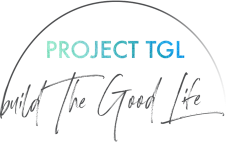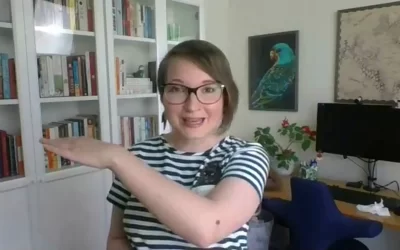Did you know that only 8% of people who make new year’s resolutions succeed in making the resolution stick for a whole year?
And that’s in a normal year, when we haven’t limped across the finish line of midnight on 31 December bewildered and mentally exhausted from living through a year of endless change, new demands, and an outsize helping of stress and anxiety.
Unsuccessful new year’s resolutions often fall into one of these three categories:
The vague goal
Resolutions in this category sound like: “I want to learn French,” “I’m going to get organised,” or “I’ll read 100 books.”
But without an action plan, it’s impossible to achieve a goal. As James Clear says: “Goals are good for setting a direction, but systems are best for making progress.”
The habit that’s not actually a habit
These resolutions sound like: “I’m going to do cardio three times a week,” “I’ll write regular to-do lists,” or “I’ll take breaks every day.”
These sound better than the “vague goal”, because hey, there’s a plan of action! But sticking to these actions can be much harder than it seems.
Psychologically speaking, a behaviour doesn’t become a habit until you start doing it on auto-pilot. And as it turns out, there’s a very specific formula to make your brain do things on auto-pilot, beyond just doing the same behaviour over and over again.
So if you don’t know the formula? Establishing new habits will be very hit-and-miss.
The sprint that should be a marathon
“I’ll build up to my ideal exercise regime by March!” “I’ll eat nutritious meals all month!” “This week, I’m going to overhaul my entire approach to planning my work!”
I’m sure you’ve experienced the excitement of going all-in on a big change… only to find your efforts (and excitement) dwindling over time, even though you know you’d love to keep it up.
It turns out that maintaining big changes? Burns a lot of energy. The reason you peter out is because you simply don’t have the resources (in terms of literal brain fuel) to keep going.
This is especially true right now, as you arrive at January off the back of a very depleting year, still catching up on loose ends from 2020, amid the ever-changing landscape of a pandemic.
So… how do I create lasting change?
Of course, nobody wants to give up on the idea of personal growth. So how do we make real, meaningful, lasting change for ourselves?
Well, you need to start by understanding how your brain works. Then you need to clear some headspace for yourself (reduce the amount of brain fuel you’re burning through). And once you’ve done that?
Then you’re ready to make changes based on how your brain really works.
That’s why my online course, Tweak Your Week, starts with a foundation of reducing your mental traffic before moving on to things like productivity and time management. With that solid foundation (and an understanding of what makes your brain tick), you can build the productivity skills that help you make plans of action that actually work.
Plans of action that help you stick to the things you most want to do, the things that are really important to you, whether those things are work, play, social, personal, or anything in between.
So if you’re looking for a way to make change for yourself in the new year, I’m delighted to tell you that Tweak Your Week is now open for enrolment!
Sound good? You can learn more (and enrol in the course) right here:




